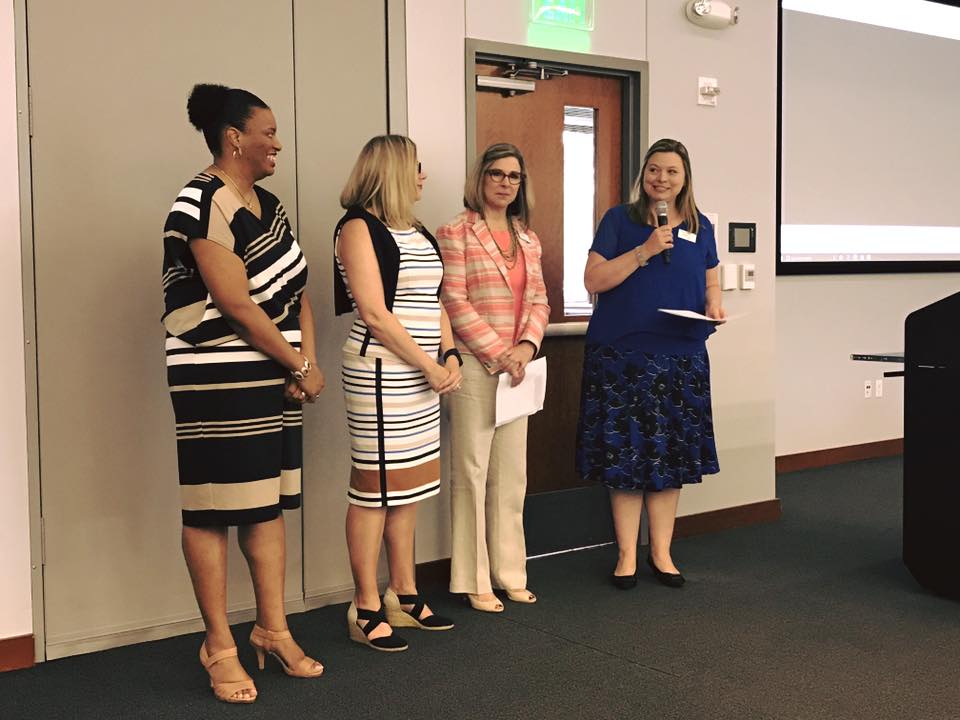
LeadershipClass Issues Initiative 2016-2017
August 18, 2017 | By LFWA unique element of LeadershipClass is the execution of Issues Initiative projects performed by participant teams that positively impact the Fort Worth Community.
These carefully identified strategic projects allow all class members to gain in-depth knowledge about a specific community problem, to interact with those most involved with that issue and to connect their resources and networks to make a positive difference.
Issues of concern in the community are identified in conjunction with the mayor and other content experts. Teams of (8-12 depending on class size) class members work together throughout the program year using a structured approach to develop solutions that will ultimately be presented to key community stakeholder audiences and the LFW Forum membership.
THE GOALS
The goals of the LFW Issues Initiatives are to complete high-impact projects that:
- Augment a local non-profit’s staffing with talented volunteer resources that help them address an issue that they could not otherwise tackle
- Establish clear objectives and specific, tangible outcomes that will clearly benefit the community
- Deliver solutions that are data-based (research component)
- Engage external resources (sources from class member networks) in a meaningful way
- Provide knowledge transfer of the solution, including key steps for sustainability, to the non-profit and its key stakeholders
THE CHALLENGE
What will be different in our community because of each Issues Initiative project?Is the plan realistic? Are the results tangible? Will the results stick?
OVERCOMING STUDENT BARRIERS TO HIGHER EDUCATION: Junior Achievement of the Chisholm Trail
The problem: For many Tarrant County students, leaving high school and attending a college or university is a challenge for which they are unprepared for a variety of reasons.
Innovative intervention: Provided new and existing integrated classroom content in conjunction with AVID teachers at Eastern Hills High School to help at-risk students transition to higher education.
EMPLOYMENT FOR THE INTELLECTUALLY DISABLED: IDD Council
The problem: Tarrant County has 100,000 individuals with IDD (Intellectual and Developmental Disabilities) who want meaningful work and a chance to connect and interact with others in the community.
Innovative intervention: Created a professionally developed toolkit to educate employers about hiring workers with IDD and a comprehensive plan to enhance the current recognition program to increase employer participation.
SELF-SUFFICIENCY MENTORING: Pathfinders
The problem: The poverty rate in Fort Worth has risen from between 12-14% to 16%. Pathfinders provides self-sufficiency mentoring services, but has more clients than mentors available.
Innovative intervention: Developed a comprehensive mentor recruiting strategy, including marketing and social media plans, resulting in 25 new Pathfinders mentors.
CHILD ABUSE PREVENTION: The Parenting Center
The problem: Tarrant County has the second-highest number of child abuse / neglect cases in the state: 6000+ annually.
Innovative intervention: Established “No-hit zones” – Where schools, hospitals, and other institutions adopt a policy addressing the unacceptability of kids hitting kids, adults hitting kids, and adults hitting adults.
Creative, Inviting Bus Stops/Shelters: Near Southside, Inc.
The problem: Fort Worth’s exponential growth has led to formidable traffic problems. Part of the Fort Worth Transportation Authority’s Master Plan includes improving bus stops and shelters.
Innovative intervention: Created and implemented a competition among local architectural firms, universities and high schools to design a bus stop or shelter that meets selected criteria (safety, comfort, aesthetics, etc.); entries were judged and prizes presented to top professional and top student entries. These designs will be implemented by The T.
SPACE-SHARING: Matching UNDERUTILIZED Churches with Social Service Programs: Partners for Sacred Places & MHMR Early Childhood Intervention
The problem: Social service delivery works best in a non-threatening, convenient, and familiar location. Today, many churches are dying; more often than not, there is unused space – also, you can find a church in nearly every neighborhood.
Innovative intervention: MHMR’s Early Childhood services will be delivered in four churches across the city.
To learn more about our LeadershipClass program, please visit.
Tags: LeadershipClass

